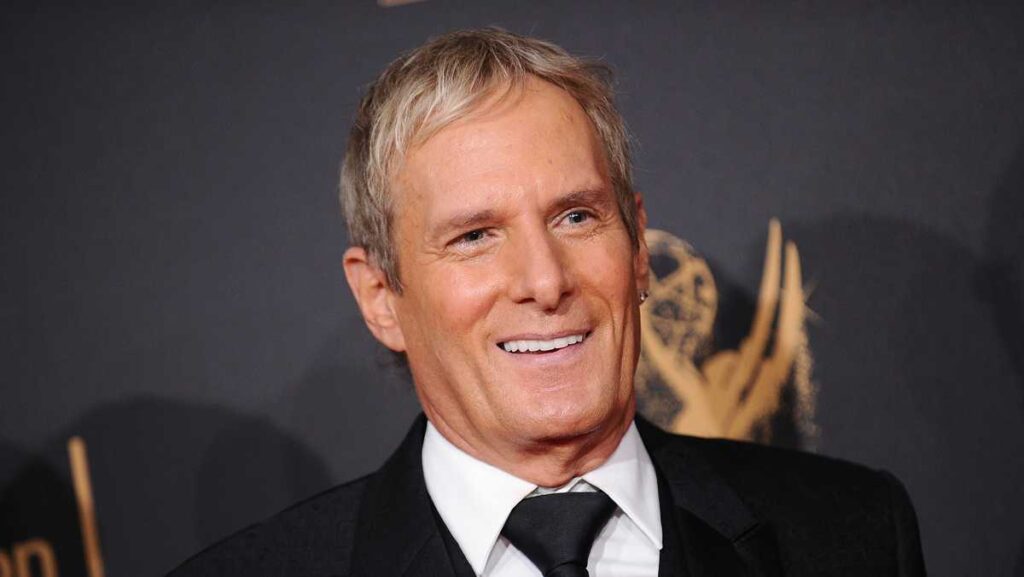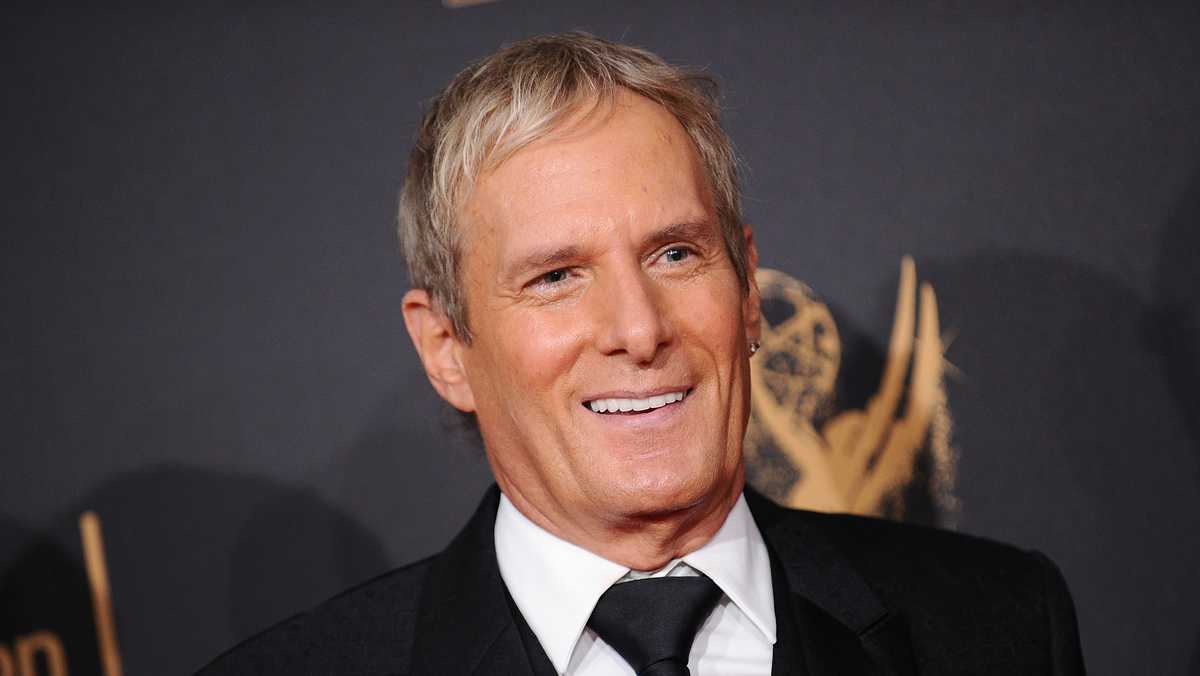Introduction
Michael Bolton, a name synonymous with timeless hits and powerful vocals, has faced his share of life’s challenges, including a significant health scare. This article delves into the journey of Michael Bolton’s stroke, shedding light on his experience, recovery, and the importance of stroke awareness.

Who is Michael Bolton?
Early Life and Background
Born Michael Bolotin on February 26, 1953, in New Haven, Connecticut, Michael Bolton is a celebrated American singer and songwriter. His passion for music was evident from a young age, leading him to pursue a career in the industry.
Rise to Fame
Bolton’s journey to stardom wasn’t immediate. He started as a hard rock singer in the 1970s before finding his niche in the soft rock and pop genres. His breakthrough came in the late 1980s with hits like “How Am I Supposed to Live Without You” and “When a Man Loves a Woman.”
Major Achievements in His Career
With multiple Grammy Awards and over 75 million records sold worldwide, Michael Bolton’s contributions to music are undeniable. His powerful voice and heartfelt lyrics have earned him a dedicated fan base and a lasting legacy in the music industry Michael Bolton Stroke.
Understanding Strokes
What is a Stroke?
A stroke occurs when the blood supply to part of the brain is interrupted or reduced, preventing brain tissue from getting the oxygen and nutrients it needs. Brain cells begin to die within minutes.
Types of Strokes
There are two main types of strokes:
- Ischemic Stroke: Caused by a blockage in an artery.
- Hemorrhagic Stroke: Caused by a blood vessel that bursts and bleeds into the brain.
Common Causes and Risk Factors
High blood pressure, smoking, diabetes, high cholesterol, and a sedentary lifestyle are among the risk factors for stroke. Family history and age also play a role.
Michael Bolton’s Stroke Incident
When It Happened
Details about the exact date of Michael Bolton’s stroke are not widely publicized, but it occurred during a period of intense touring and recording.
How It Was Discovered
Bolton experienced symptoms that led to a medical evaluation, revealing he had suffered a stroke. Immediate medical attention was crucial in his case.
Initial Reactions and Concerns
The news of Bolton’s stroke shocked his fans and the music industry. Concerns about his health and future performances were prevalent, but support poured in from around the world.
Symptoms and Warning Signs
Symptoms Experienced by Michael Bolton
Like many stroke victims, Bolton experienced sudden and severe symptoms, including weakness on one side of his body, difficulty speaking, and a severe headache.
General Warning Signs of a Stroke
The acronym FAST (Face drooping, Arm weakness, Speech difficulty, Time to call emergency services) is used to identify the warning signs of a stroke.
Importance of Early Detection
Early detection and treatment are critical to minimizing the damage caused by a stroke. Quick medical intervention can significantly improve recovery outcomes.
Immediate Response and Treatment
Immediate Actions Taken
Upon recognizing the symptoms, Bolton was rushed to the hospital where he received immediate medical care.
Medical Response and Treatment Administered
Bolton underwent various treatments, including medication to dissolve blood clots and stabilize his condition. The medical team’s prompt response was vital.
Importance of Timely Medical Intervention
Timely medical intervention can save lives and reduce the long-term impact of strokes. Bolton’s case underscores the importance of immediate action.
Recovery Process
Rehabilitation Journey
Bolton’s recovery involved a comprehensive rehabilitation program, including physical therapy to regain strength and coordination.
Physical Therapy and Other Treatments
His rehabilitation included speech therapy, occupational therapy, and other treatments to address the effects of the stroke.
Bolton’s Determination and Resilience
Bolton’s determination played a crucial role in his recovery. His resilience and positive attitude inspired many.
Impact on Career
Short-Term Effects on His Work
Bolton had to take a break from his hectic schedule to focus on his recovery, leading to the postponement of several performances and projects.
Long-Term Career Adjustments
Bolton made necessary adjustments to his career to accommodate his health, including a more manageable schedule and increased focus on health and wellness.
Public and Fan Reactions
Fans worldwide expressed their support and relief at Bolton’s recovery, demonstrating the deep connection he has with his audience.
Bolton’s Public Statements
Official Statements and Interviews
Bolton addressed his health scare in various interviews, sharing his experience and emphasizing the importance of stroke awareness.
Messages to Fans and the Public
In his messages, Bolton thanked his fans for their unwavering support and encouraged them to be vigilant about their health.
Advocacy for Stroke Awareness
Bolton has since become an advocate for stroke awareness, participating in campaigns and sharing his story to educate others.
Support System
Family and Friends’ Support
Bolton’s family and friends were instrumental in his recovery, providing emotional and practical support.
Medical Team and Caregivers
A dedicated team of medical professionals and caregivers played a crucial role in Bolton’s rehabilitation.
Community and Fan Support
The outpouring of support from fans and the community reinforced Bolton’s resolve to recover and continue his career.
Stroke Awareness and Prevention
Bolton’s Involvement in Awareness Campaigns
Bolton actively participates in stroke awareness campaigns, using his platform to educate the public about stroke prevention and treatment.
Tips for Preventing Strokes
Preventive measures include maintaining a healthy diet, regular exercise, avoiding smoking, and monitoring blood pressure.
Importance of Regular Health Check-Ups
Regular health check-ups can help detect risk factors early and prevent strokes. Bolton emphasizes this in his advocacy work.
Life After Stroke
Changes in Lifestyle
Bolton has made significant lifestyle changes to support his health, including a balanced diet and regular exercise.
Continued Career Achievements
Despite the setback, Bolton continues to achieve success in his career, releasing new music and performing for his fans.
Personal Growth and Perspectives
Bolton’s experience has given him a new perspective on life, emphasizing the importance of health and well-being.
Inspirational Message
Bolton’s Message of Hope and Resilience
Bolton’s journey is a testament to the power of resilience and determination. He encourages others facing health challenges to stay hopeful and strong.
Encouragement for Others Facing Health Challenges
Bolton’s story serves as an inspiration for anyone dealing with health issues, reminding them that recovery is possible with the right support and mindset.
Conclusion
Michael Bolton’s stroke was a life-changing event that tested his strength and resilience. His journey from the incident to recovery highlights the importance of immediate medical intervention, a strong support system, and ongoing awareness and prevention efforts. Bolton’s advocacy for stroke awareness and his personal story continue to inspire many.
FAQs
What caused Michael Bolton’s stroke?
Michael Bolton’s stroke was likely caused by a combination of factors, including stress and possibly underlying health conditions, though specific details have not been widely disclosed.
How did Michael Bolton’s stroke affect his career?
The stroke temporarily halted Bolton’s career as he focused on recovery. However, he made a strong comeback, adjusting his schedule and continuing to create music and perform.
What are the signs of a stroke?
The signs of a stroke include sudden numbness or weakness, especially on one side of the body, confusion, trouble speaking, vision problems, difficulty walking, and a severe headache.
How can strokes be prevented?
Strokes can be prevented by maintaining a healthy lifestyle, including a balanced diet, regular exercise, avoiding smoking, controlling blood pressure, and managing chronic conditions like diabetes.
Where can I learn more about stroke awareness?
You can learn more about stroke awareness from medical organizations such as the American Stroke Association and the National Stroke Association, which provide valuable resources and information.
